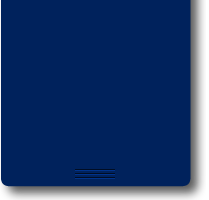








Study Reveals AI Enhances Physician-Patient Communication
New tool drafts compassionate responses to assist providers with patient message replies
As one of the first health systems in the country to pilot the use of generative artificial intelligence (GenAI) to draft replies to patient messages inside the Epic Systems electronic health record, UC San Diego Health is a pioneer in shaping the future of digital health.
The results of a new University of California San Diego School of Medicine study indicate that, although AI-generated replies did not reduce physician response time, they have contributed to relieving cognitive burden by starting an empathetic draft, which physicians can edit rather than starting from scratch.
The study, published in the April 15, 2024 online edition of the Journal of the American Medical Association’s Network Open, is the first randomized prospective evaluation of AI-drafted physician messaging.
“We are very interested in using AI to help solve health system challenges, including the increase in patient messages that are contributing to physician burnout,” said study senior author Christopher Longhurst, MD, executive director of the Joan and Irwin Jacobs Center for Health Innovation, chief medical officer and chief digital officer at UC San Diego Health. “The evidence that the messages are longer suggests that that they are higher quality, and the data is clear that physicians appreciated the help, which lowered cognitive burden.”
This quality improvement study evaluates patient-physician correspondence and suggests that the integration of generative AI into digital health care interactions has the potential to positively impact patient care by improving communication quality, efficiency and engagement. In addition, by alleviating some of the physician workload, the goal is for generative AI to help reduce burnout by allowing doctors to focus on more complex aspects of patient care.
“This study shows that generative AI can be a collaborative tool,” said study lead author Ming Tai-Seale, PhD, MPH, professor of family medicine at UC San Diego School of Medicine. “Our physicians receive about 200 messages a week. AI could help break ‘writer’s block’ by providing physicians an empathy-infused draft upon which to craft thoughtful responses to patients.”
The COVID-19 pandemic sparked unprecedented use of digital communications between patients and doctors that have remained in high demand. Portals, such as MyUCSDChart, used by UC San Diego Health, make it simple to email a doctor directly and have created heightened pressure for prompt provider responses that many can no longer efficiently handle.
Using generative AI to draft patient responses to non-emergency questions has been tested in the pilot program with electronic health record vendor Epic Systems, initiated in April 2023 at UC San Diego Health, to offer virtual physician assistance to help meet the rising demand of patient messages. For full transparency, the replies include a notification that they have been automatically generated by AI before being reviewed and edited by the physician who signs them.
Time-crunched physicians who may only have time for a brief, facts-only response, found that generative AI is helping to draft longer, compassionate responses that are appreciated and understood by patients.
“AI doesn’t get tired, so even at the end of a long day, it still has the capacity to help draft an empathetic message while synthesizing the request and relevant data into the response,” said study co-author Marlene Millen, MD, chief medical information officer for ambulatory care at UC San Diego Health. “So, while we were surprised by the study’s findings that AI messaging didn’t save doctors time, we see that it may help prevent burnout by providing a detailed draft as a starting point.”
The study’s findings suggest a potential paradigm shift in health care communication by leveraging AI, noting that further analysis is needed to gauge how beneficial patients deem the increased empathy and reply length to be.
UC San Diego Health, in conjunction with the Jacobs Center for Health Innovation, has been extensively testing GenAI models since May 2023. These transformative projects will help explore the safe, effective and novel use of GenAI in health care.
Co-authors of the study include: Sally L. Baxter, Florin Vaida, Amanda Walker, Amy M. Sitapati, Chad Osborne, Joseph Diaz, Nimit Desai, Sophie Webb, Gregory Polston, Teresa Helsten, Erin Gross, Jessica Thackaberry, Ammar Mandvi, Dustin Lillie, Steve Li, Geneen Gin, Suraj Achar, and Heather Hofflick all of UC San Diego; and Christopher Sharp of Stanford.
This work was supported in part by the Joan and Irwin Jacobs Center for Health Innovation at UC San Diego Health, and a grant from the Agency for Healthcare Research and Quality (P30 HS029770-01).
The information contained in this online site is intended to provide accurate and helpful health information for the general public. It is made available with the understanding that the author and publisher are not engaged in rendering medical, health, psychological, or any other kind of personal professional services on this site. The information should not be considered complete and does not cover all diseases, ailments, physical conditions or their treatment. It should not be used in place of a call or visit to a medical, health or other competent professional, who should be consulted before adopting any of the suggestions in this site or drawing inferences from it.
The information about drugs contained on this site is general in nature. It does not cover all possible uses, actions, precautions, side effects, or interactions of the medicines mentioned, nor is the information intended as medical advice for individual problems or for making an evaluation as to the risks and benefits of taking a particular drug.
The operator(s) of this site, and the publisher, specifically disclaim all responsibility for any liability, loss or risk, personal or otherwise, which is incurred as a consequence, directly or indirectly, of the use and application of any of the material on this site.
Click Here To Accept